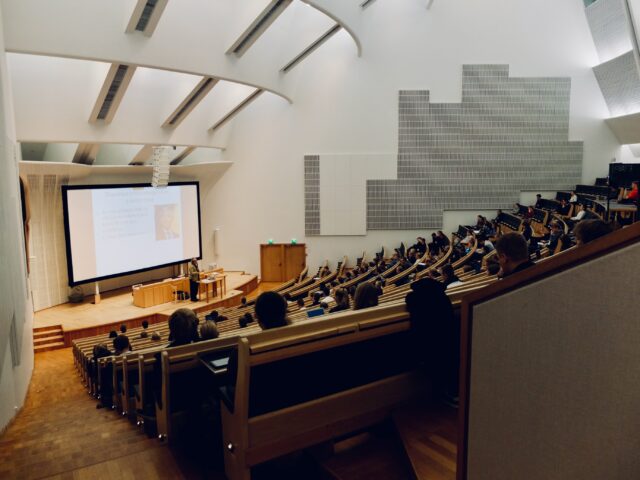Indigenous CPA candidates will have a new opportunity to study a CPA curriculum that includes case studies inspired by Indigenous traditions. The CPA Western School of Business Indigenous education program uses Indigenous business cases that are designed by Indigenous CPAs. The program also offers in-person learning opportunities, multiple satellite locations, opportunities for peer learning and support, and more. This gives Indigenous CPA students the opportunity to see themselves within the curriculum and addresses the institutional barriers presented by the accounting profession. “The impact of Indigenous students seeing themselves is so profound,” said Robert Andrews, executive director of the Aboriginal Financial Officers Association in Alberta and Blackfoot First Nation member. “It validates the self. It validates their culture and traditions. The impact of seeing oneself in that material is like seeing yourself for the first time.”

Indigenous Top Ten News
July 12, 2023
Antler River Elementary School of the Chippewas of the Thames First Nation has received a new water filtration system, thanks to the efforts of St Anne Catholic School students. While conducting research for a water awareness and conservation campaign, the St Anne’s Social Justice and Wellbeing Club learned that 23 Indigenous communities in Ontario have a boil-water advisory. St Anne Grade 2/3 Teacher Lori Barbato said that students felt that this was “outrageous,” and asked if there was anything they could do to help. St Anne used a $500 grant to sell reusable water bottles in order to raise funds to buy a free-standing water filtration system for Antler Elementary. St Anne students presented the filtration system to Antler Elementary during a Pow Wow. “They had a chance to talk to some of the community members there and participate in the Pow Wow, which was a really wonderful experience for my students,” said Barbato.
In a recent editorial, Doug Cuthand, who is the Indigenous affairs columnist for the Saskatoon StarPhoenix and the Regina Leader-Post, discusses Indigenous graduation rates and traditional education. Cuthand discusses the recent annual report by Saskatchewan provincial auditor Tara Clemett and the gaps in the data regarding Indigenous student graduation rates. Cuthand writes that while students previously had to leave home to pursue a “substandard” education, new opportunities have opened within Indigenous communities taking control over their education. This includes the development of the First Nations University of Canada and the Saskatchewan Indian Institute of Technologies, which Cuthand writes have had steadily increasing graduation rates. The author argues that Indigenous education needs to be re-examined to improve outcomes, since Indigenous students often have challenges fitting into the provincial “one-size-fits-all formula.” Additionally, Cuthand emphasizes that education happens within a variety of informal environments, and that Indigenous communities need to use their own metrics to evaluate education.
Red River College Polytechnic received $500K from Canada Life to support the creation of an Indigenous-led student mentorship program. The program will be offered across all of the polytechnic’s campuses and programs, providing support and guidance to Indigenous learners as they navigate their education and early employment. “For aspiring Indigenous students, this program will help instill confidence, cultivate connections on campus, and foster a two-way, mutually beneficial learning experience between students and employers,” said RRC Polytech President Fred Meier.
The construction of a new childcare centre on the grounds of Colwood Elementary School was kicked off with a special ceremony earlier this summer. The new childcare centre will be operated by Hulitan Family and Community Services Society and is the first Indigenous-specific, trauma-informed childcare facility in the Capital Region. It will include 48 spaces for infants, toddlers, and 3-to-5-year-olds, as well as 25 before and after school care spaces. “As a school district we’ve partnered with Hulitan, we applied to that new spaces funding and it comes to the school district,” said Scott Stinson, superintendent of the Sooke School District. “We own the land, we’re building the building, and we’ll give a long term lease for operating the facility to Hulitan.” As a result of the partnership, the Hulitan society will only pay for the operating costs to run the facility, keeping fees low for parents.
The Congress of Aboriginal Peoples (CAP), a national group representing Indigenous people living off-reserve, has filed a lawsuit against the federal government over the exclusion of Indigenous peoples without status under the Indian Act from postsecondary funding. CFNR reports that the lawsuit names the Minister of Indigenous Services and Attorney General and alleges that they “violated section 15 of the Canadian Charter of Rights and Freedoms by effectively impeding access to post-secondary education.” CAP states that more than half of the over-1.6-million Indigenous people in Canada do not have status under the Indian Act, and a previous CAP-filed lawsuit reportedly found that non-status Indigenous people are more likely to be exposed to discrimination.
The University of New Brunswick, Fleming College, and Trent University recently hosted ceremonies and gatherings to celebrate new or upcoming spaces on their respective campuses. At UNB, a land blessing ceremony was held on the future site of the Health and Social Innovation Centre, which included the lighting of a sacred fire; an opening prayer from Elder Jeannie Bartibogue of the Esgenoôpetitj; and remarks from members of the UNB and local communities. Fleming College welcomed the community to a celebration of the opening of the Biindigen Student Space at its Haliburton Campus. Trent recently shared that it will also erect a 30-foot tipi at its Durham GTA campus this Fall that will feature stone benches and a fire pit.
The University of Saskatchewan’s Indian Teacher Education Program (ITEP) has reached its 50th anniversary, reportedly making it the longest standing Indigenous education program in North America. “ITEP was built because it was what our Elders wanted: to strengthen identity and culture and provide opportunities to build strong Indigenous people and communities through education,” explained ITEP director Yvette Arcand, who graduated from the program in 1997. “Today, Indigenous teachings and ways of knowing are embedded not only in our schools and provincial curriculum, but that desire to engage with and learn about Indigenous culture is throughout larger society as well. ITEP was a part of that.” The program has graduated over 3,000 alumni since its doors opened in the 1970s.
Summer camps focused on providing learning opportunities to Indigenous students are well underway at the University of Winnipeg and Vancouver Island University UWinnipeg’s Wii Chiiwaakanak Learning Centre will be hosting over 200 Grade 1 to 8 students at its Indigenous STEAM Summer Camp. VIU will be hosting a free summer camp for Indigenous youth that was organized by the ‘su’luqw’a’ Community Cousins Indigenous student mentorship program. “The biggest thing about this camp is to get Indigenous youth thinking about post-secondary,” said VIU Office of Indigenous Education and Engagement Program Coordinator Sheldon Scow. “A lot of us feel like we don’t belong.”
School District 5, College of the Rockies, Ktunaxa First Nation, and local Métis cultural groups recently gathered to renew and update the School District 5 Indigenous Education Enhancement Agreement. The agreement, which is updated every five years, provides a framework for Indigenous education in the Southeast Kootenays. The updates to the document include a change in terminology—from “aboriginal” to Indigenous—and two newly developed sections that outline the wishes of the Indigenous community, such as having a gathering space for Indigenous students at each school. “I do know that our Indigenous students are still very much feeling racism in the system and being confronted with it,” said Chief Joe Pierre of the ʔaq’am band, reflecting on how that experience of racism has changed over time. “A sense of belonging in school will lead to a sense of achievement and achieving in the school system will lead to a sense of belonging.”
